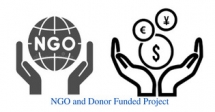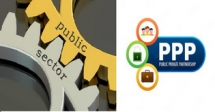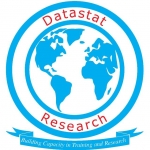|
|
Training Course on International Protocol and Diplomacy
USD 1,100 |
Venue: Datastat Research Institute
In today’s globalized world, effective communication and cultural awareness are critical for fostering strong international relationships. Mastery of international protocol and diplomacy ensures seamless interaction among governments, international organizations, and businesses across diverse cultures and settings. This International Protocol and Diplomacy training course is designed to equip professionals with the skills and knowledge to navigate complex diplomatic engagements with confidence and cultural sensitivity.
Protocol serves as the framework for orderly communication and interaction in official, corporate, and diplomatic environments. Understanding the nuances of international etiquette, cultural norms, and ceremonial practices can strengthen partnerships, prevent misunderstandings, and promote cooperation. This course provides participants with insights into key protocol principles and best practices in diplomatic relations.
Whether preparing for state visits, international conferences, or cross-border negotiations, proficiency in diplomacy and protocol is essential for creating a positive impression and achieving strategic objectives. Participants will explore real-world case studies, engage in role-playing exercises, and gain actionable strategies for handling diverse diplomatic scenarios.
From government officials and corporate leaders to public relations professionals, this course caters to individuals who interact on the global stage. With expert-led instruction and hands-on exercises, participants will develop the expertise to represent their organizations with poise and professionalism in any international setting.
Course Duration: 5 Days
Course Objectives
- Understand the principles of international protocol and its relevance in diplomacy.
- Learn the roles and responsibilities of protocol officers in various contexts.
- Gain insights into the cultural dynamics of international etiquette.
- Master the organization and management of official ceremonies and events.
- Develop effective communication strategies for diplomatic engagements.
- Enhance cross-cultural negotiation and conflict resolution skills.
- Learn the proper use of titles, precedence, and flags in protocol settings.
- Understand the protocols surrounding state visits and high-level meetings.
- Gain practical skills in preparing for international conferences and summits.
- Explore best practices for representing organizations in international forums.
Organizational Benefits
- Strengthened international partnerships and collaborations.
- Improved cultural competence among staff and leaders.
- Enhanced organizational reputation through professional representation.
- Increased efficiency in managing diplomatic engagements and events.
- Mitigated risks of cultural misunderstandings and faux pas.
- Better preparation for participation in global conferences and summits.
- Increased trust and credibility among international stakeholders.
- Enhanced negotiation outcomes through effective diplomatic strategies.
- Strengthened team confidence in handling cross-cultural scenarios.
- Improved alignment with international protocol standards and practices.
Target Participants
- Government officials and diplomats involved in international relations.
- Corporate executives and managers conducting cross-border business.
- Protocol officers and event planners managing international events.
- Public relations and communication professionals working in global contexts.
- Staff of international organizations, NGOs, and embassies.
Course Outline
Module 1: Foundations of International Protocol and Diplomacy
- Definition, history, and significance of protocol and diplomacy.
- Key principles of protocol and their application in global settings.
- Roles and responsibilities of protocol officers.
- Understanding cultural norms and values in diplomacy.
- Case Study: Successful application of protocol in a state visit.
Module 2: Protocol for Official Ceremonies and Events
- Planning and managing official ceremonies and receptions.
- Seating arrangements, precedence, and hierarchy.
- Flag etiquette and national symbols.
- Managing media and public relations at events.
- Case Study: Organizing a high-level international summit.
Module 3: Cross-Cultural Communication and Etiquette
- Navigating cultural differences in international interactions.
- Understanding body language, gestures, and non-verbal cues.
- Business etiquette in different regions and countries.
- Conflict resolution in cross-cultural settings.
- Case Study: Avoiding cultural misunderstandings in negotiations.
Module 4: Diplomatic Correspondence and Communication
- Writing official letters, memos, and invitations.
- Effective communication in diplomatic settings.
- Addressing dignitaries and high-ranking officials.
- Use of titles, honorifics, and salutations.
- Case Study: Crafting diplomatic correspondence for a trade agreement.
Module 5: Protocol in International Negotiations and Summits
- Preparing for bilateral and multilateral negotiations.
- Understanding negotiation styles across cultures.
- Protocol considerations during high-stakes meetings.
- Building consensus in complex diplomatic scenarios.
- Case Study: Navigating protocol in a global trade negotiation.
Module 6: Protocol Challenges and Best Practices
- Common mistakes in international protocol and how to avoid them.
- Adapting to evolving diplomatic norms and practices.
- Balancing tradition and modernity in protocol.
- Handling protocol breaches and sensitive situations.
- Case Study: Lessons from protocol challenges in international events.
Training Methodology
This course employs a participatory and hands-on approach to ensure practical learning, including:
- Interactive lectures and presentations.
- Group discussions and brainstorming sessions.
- Hands-on exercises using real-world datasets.
- Role-playing and scenario-based simulations.
- Analysis of case studies to bridge theory and practice.
- Peer-to-peer learning and networking.
- Expert-led Q&A sessions.
- Continuous feedback and personalized guidance.
Register as a group from 3 participants for a Discount
Certification
Upon successful completion of this training, participants will be issued with a globally- recognized certificate.
Tailor-Made Course
We also offer tailor-made courses based on your needs.
Key Notes
a. The participant must be conversant with English.
b. Upon completion of training the participant will be issued with an Authorized Training Certificate
c. Course duration is flexible and the contents can be modified to fit any number of days.
d. The course fee includes facilitation training materials, 2 coffee breaks, buffet lunch and A Certificate upon successful completion of Training.
e. One-year post-training support Consultation and Coaching provided after the course.
f. Payment should be done at least a week before commence of the training, to DATASTAT CONSULTANCY LTD account, as indicated in the invoice so as to enable us prepare better for you.
| Datastat Research Institute | Jan 06 - 10 Jan, 2025 |
| USD 1,100.00 | |
Sammy Gathuru 0724527104
Related Courses
 Training Course on Grant Management using Infor Sun Accounting System
Training Course on Grant Management using Infor Sun Accounting System
12 days, 06 - 17 Jan, 2025
Datastat Research Center
 Training Course on Monitoring and Evaluation for Governance (Decentralization and Local Governance)
Training Course on Monitoring and Evaluation for Governance (Decentralization and Local Governance)
5 days, 06 - 10 Jan, 2025
Datastat Research Center
 Training Course on M&E, Data Management and Analysis for in Food Security and Nutrition Programmes
Training Course on M&E, Data Management and Analysis for in Food Security and Nutrition Programmes
5 days, 06 - 10 Jan, 2025
Datastat Research Center




